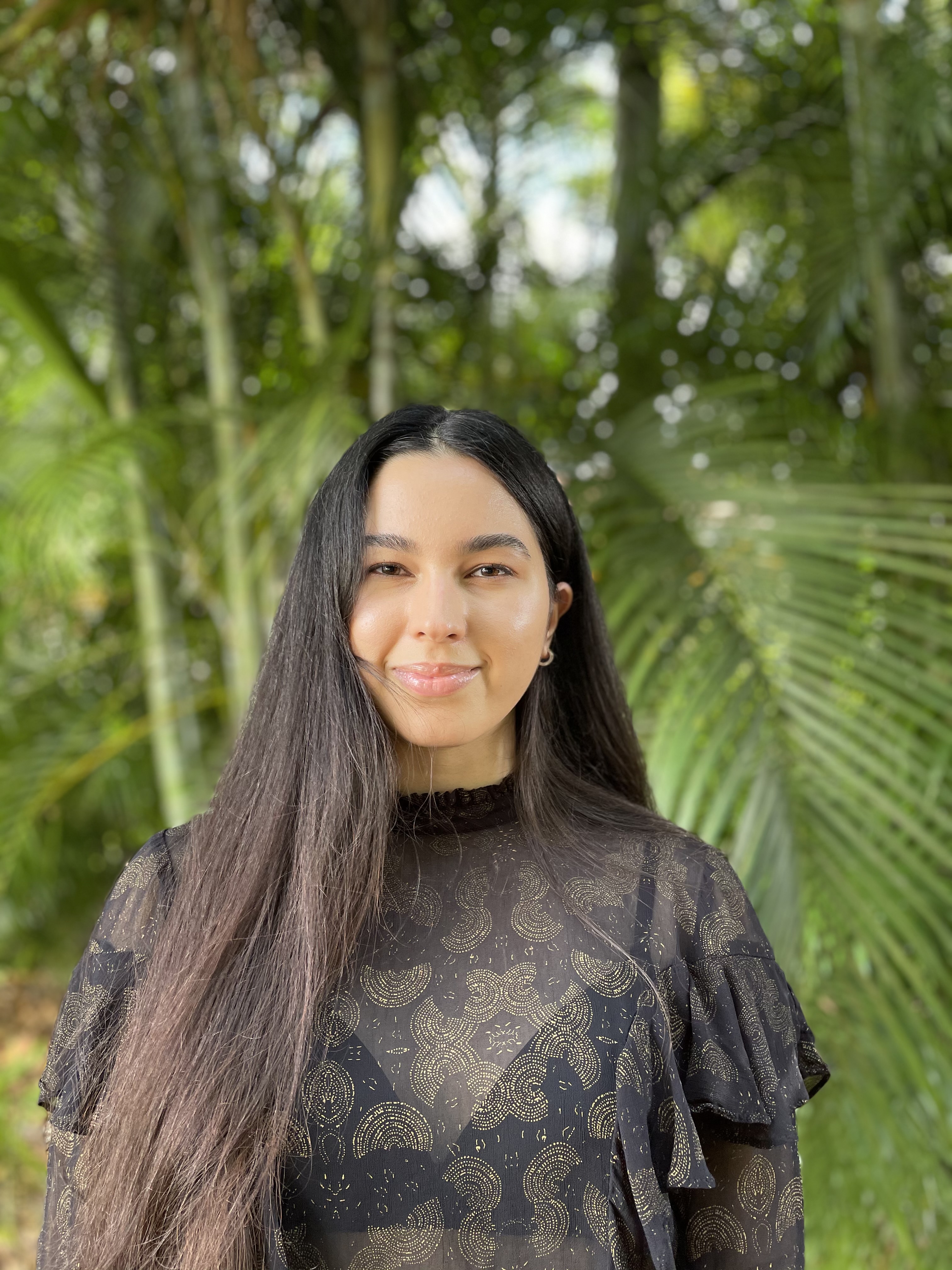Research Symposium
22nd annual Undergraduate Research Symposium
Fatima Verona Poster Session 5: 1:30 - 2:15/Poster #50

BIO
Fatima is a second-year public health and economics student from Miami and plans to get a master's degree in epidemiology. She is interested in healthcare policy and administration and improving the current U.S. healthcare system. She is also interested in the national nutritional crisis leading to increased cases of obesity and linked chronic illnesses and diseases and wants to be a part of the solution. In her free time, Fatima likes to read and expand her skill set through online courses. On campus, Fatima is involved in the Hispanic Honors Society, the Food Recovery Network, and will be working as a resident assistant next semester. A fun fact about her is that she took part in FSU's Gap Year Fellowship program, where she spent most of her time volunteering in Costa Rica.
See it Through My Eyes: The comparison of teacher and student perspective on productive science talk and "doing science" in the classroom.
Authors: Fatima Verona, Jennifer SchellingerStudent Major: Public Health
Mentor: Jennifer Schellinger
Mentor's Department: School of Teacher Education Mentor's College: College of Education Co-Presenters: Cristina Murdock, Alexander Blanco, Coralie Lans
Abstract
The purpose of the Learning through Collaborative Design Professional Development (LCDPD) project is to support science teachers in meeting reform visions for science education (NGSS, 2013; NRC, 2012). One aspect of this vision is to engage students in productive science talk, talk that positions students to sensemake about scientific phenomenon and develop understandings of scientific concepts and practices. This study takes a deeper look into Mr. Jerry’s middle school biology class to better understand how Mr. Jerry and his students interpreted four focal lessons designed to engage them in productive talk. Through thematic coding, the first four authors identified aspects of students’ interpretations and feelings around these lessons and compared them with Mr. Jerry’s perspective of the same lessons. Through this analysis, we found Mr. Jerry and his students to have similar accounts of the importance of talk in the classroom, and that one lesson, the skin cancer lesson, was particularly impactful on students’ ideas about how science is done. Additionally, we found that Mr. Jerry and his students differed on how they saw the teacher role in talk, as Mr. Jerry saw himself as a facilitator and his students saw him in an authoritative “knowledge giver” role. These initial findings suggest the need for research to look deeper at the framing of the lesson and the role students’ perception plays in the larger ideas of “doing science” when engaging in talk.
Keywords: productive talk, sensemaking, professional development

